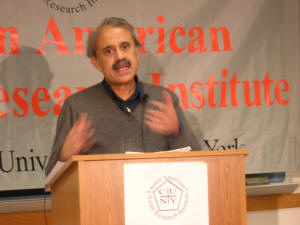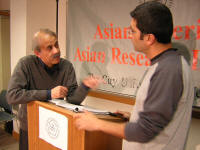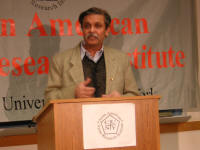by Ali Khan
December 9, 2005

In a recent essay, the author read Peter Singer’s One world: the ethics of globalization as an attempt to use utilitarianism as the universal solvent of reason in forging a unified stance towards atmosphere, economy, law and community. I argued, among other things, that the application of the fundamental theorems of welfare economics falters for perhaps the same reason that it falters in forging a unified consensus on national economic policy: that problems of poverty, inequality, governance, corruption, transparency, tolerance, growth and welfare, and more generally of justice and freedom, be they economic or political, are not packages to be pried open by the language of (mathematical) economic theory alone.

In this second reading, I make yet another attempt to understand what Peter Singer is saying in his book, but rather than the context of the “world”, I do so with sectarian conflict in Pakistan as the relevant background. In this attempted application of Singer’s principles to one problem of one nation state, a so-called LDC, Pakistan, I attempt to identify the commercial vocabulary in recent court rulings regarding the Ahmediyya community. This allows me to inquire into situations when the social, political and the communal can be productively bracketed from the economic.
 Co-Sponsor: Society of Indian Academics
Co-Sponsor: Society of Indian Academics
